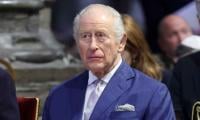LAHORE
Speakers at the opening ceremony of three-day international conference on “Health Psychology: Issues and Challenges” at the Government College University (GCU) here on Wednesday laid a stress on expanding the role of health psychologists in education and health sectors to modify human behaviours.
Scholars and faculty members from 35 universities of Pakistan and delegates from Germany, the United Kingdom and Canada are participating in the conference jointly organised by the GCU Psychology Department, Punjab Higher Education Commission (PHEC), Higher Education Commission of Pakistan (HEC) and Punjab AIDS Control Programme. The conference is spread over 15 scientific sessions and six talks by eminent foreign psychologists.
In his presidential address at the opening ceremony, Punjab Minister for Higher Education Raza Ali Gillani said health psychology was a broad field that covered multiple issues related to social, emotional and physical well-being. He hoped this gathering of scholars and professionals would make recommendations to the government for meeting the challenges to their education and health care systems. He also said it was psychologists' duty to reform society.
Dr Syeda Shahida Batool, chairperson of GCU Psychology Department, said “Despite the realisation for overall unhealthy lifestyle, increasing ratio of chronic illnesses and escalating health care costs, the government is yet to focus on health psychology which helped modify human behaviour.
Dr Batool highlighted that there was no scope of health psychology in Pakistan while standards of training of health psychologists were undefined. She said the role of health psychologists in the hospitals was not well-defined and sometimes it was confused with that of clinical psychologists.
GCU Vice-Chancellor Prof Dr Hassan Amir Shah said the university had received more than 300 quantitative and qualitative research papers for the conference on coping with stress, heart diseases, hypertension, cancer, eating disorders, infertility, arthritis, HIV/AIDS, diabetics, burden of care, and assessment issues in healthy psychology. He said the papers would add to their understanding that how psychological, behavioural and cultural factors contribute to physical health and illness of individuals.
In his key note address, Prof Dr Syed Ashiq Ali Shah from Kwantlen Polytechnic University, British Columbia, Canada, highlighted the impact of psychosocial-cultural influences on physical and mental health. He said arrogance, prejudice, xenophobia and aggression eradicated happiness from life while gratitude, thankfulness, sincerity, love and respect toward others were the sources of true happiness in life.
Dr Barabara Keller from University of Bielefeld, Germany, said health was not just absence of disease but the presence of positive well-being and movement towards positive directions. She said that this psycho-biosocial model of health had made health psychology a diversified but specialised field. She also believed faith and religion had key role in strong mental health of individuals.
Adnan Zafar Khan, additional secretary of Health Department, Punjab, also laid stress on expanding the role of health psychology, saying that one major challenge to mental health professionals was to manage chronic illnesses like cancer, arthritis, coronary heart disease, hepatitis and HIV/AIDS. He said that in his view, this one of the major segments of population with chronic illness had largely been ignored while making health polices.
Meanwhile, Minister Syed Raza Ali Gillani also addressed the international workshop on outcome-based education and implementation at the University of Engineering and Technology (UET). He said universities were powerful engines of innovation and intellectual development which trained the students as best professionals to steer different spheres of the economy. He said outcome-based education benefited students. He urged the engineering students to learn new trends and give innovative solutions for improving the quality of life of the ordinary people through dexterous use of information and communication technologies. The government is committed to fully train the students in universities by providing them with the best facilities. He said that after completion of CPEC, Pakistan would be the new ‘Gulf of Asia’ where different nations would come for trade and commerce-related activities. He said the students should prepared themselves to benefit from the situation.
UET Vice-Chancellor Dr Fazal Ahmad Khalid, Putra University of Malaysia’s Azlan Bin Abdul Aziz also spoke.















